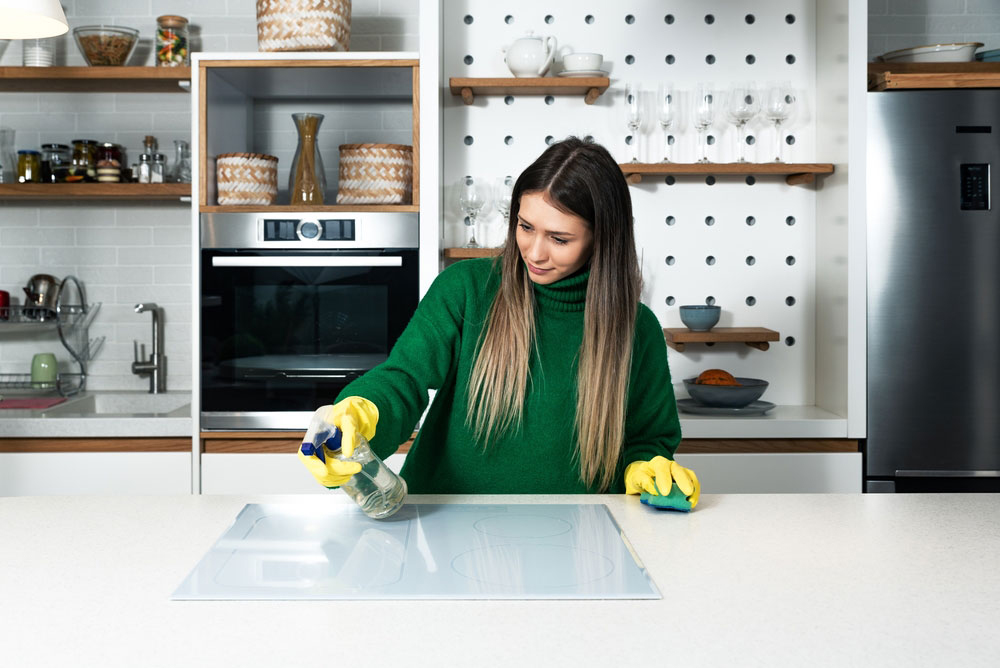OCD Cleaning
Many people take pride in keeping their homes clean. Sweeping, mopping, disinfecting surfaces or reorganizing a cluttered closet can give you a sense of accomplishment and satisfaction. But for people living with obsessive-compulsive disorder, the urge to clean often goes far beyond tidiness. In some cases, cleaning becomes a compulsion driven by fear, anxiety or intrusive thoughts, and it can disrupt your daily life, relationships and emotional well-being.
Understanding OCD and Cleaning Compulsions
OCD is a mental health disorder marked by persistent, unwanted obsessions and repetitive behaviors intended to drive them away. One of the most widespread subtypes of OCD relates to contamination fears and compulsive cleaning behaviors.
For people with contamination OCD, cleaning is not about neatness or hygiene. Your daily routine may involve time-consuming rituals performed repeatedly and in a specific order, with the belief that these actions are necessary to prevent harm – even if the perceived threat is not real or rational.
While someone without OCD might set aside a few minutes to lightly straighten up, a person with this disorder may spend hours scrubbing, sanitizing and disinfecting themselves and their living area to relieve feelings of anxiety or fear.
When Is Cleaning a Sign of OCD?
The difference between regular cleaning and OCD cleaning lies in the intent and emotional experience behind it. Here are a few signs that your desire for cleanliness may be a symptom of OCD.
- Cleaning feels urgent and necessary to avoid illness or contamination.
- You believe your specific cleaning rituals will keep you and your loved ones safe. However, the feeling of relief or security is only short-lived.
- Magical thinking may be present – for example, believing that the specific number or pattern of your actions will ward off disease.
- Your behavior is repetitive and time-consuming, often taking hours each day.
- Skipping or interrupting your cleaning routine causes intense anxiety, panic or guilt.
- You spend so much time cleaning that it interferes with your work, relationships or daily functioning.
This level of cleaning is not about preference or perfectionism – it’s about trying to neutralize overwhelming, intrusive fears, often with a profound sense of responsibility for others’ health and wellness.
The Role of Ritual and Magical Thinking
A hallmark of OCD is the presence of ritualistic behavior that may seem illogical to outsiders but feels essential to you. Someone with OCD cleaning compulsions may feel compelled to wash their hands in a highly specific way, clean items in a strict order or disinfect the same surface multiple times – regardless of whether it’s visibly dirty.
These rituals can temporarily relieve distress caused by obsessive thoughts like these.
- “My child will get sick if I don’t clean the kitchen floor seven times.”
- “If I miss a spot, it will cause a disaster.”
- “Only I can keep this space safe.”
These examples reflect magical thinking – the belief that your thoughts or actions can control unrelated outcomes. While these thoughts may not hold up under logical scrutiny, the fear driving these behaviors is real and powerful.
Getting Help for OCD Cleaning Behaviors
Living with untreated OCD can be exhausting. The constant pressure to clean, fear of contamination and compulsions to complete time-consuming rituals can take a serious toll on your mental health and quality of life as the disorder gets worse over time. Fortunately, effective treatment is available.
- Cognitive behavioral therapyis the gold standard for treating OCD. Mental health professionals specializing in CBT help clients recognize and eliminate negativity and compulsions. Facing your fears without experiencing harmful consequences will teach you that intrusive thoughts are powerless, reducing anxiety over time and breaking your reliance on rituals.
- Medication, such as selective serotonin reuptake inhibitors, may also be helpful in reducing obsessive thoughts and compulsive urges.
Has Cleanliness Become a Compulsion?
A desire to keep your living space neat and tidy does not mean you haveOCD. But it may be time to seek help when cleanliness becomes an all-consuming compulsion driven by fear and guilt. OCD cleaning routines are not about choice – they arise from an overwhelming desire to feel safe in a world that feels threatening or out of control.
Serene Behavioral Health helps our clients understand and manage mental health conditions like OCD by separating ordinary habits from disruptive, distressing patterns. Contact us to learn how we can empower you to recover. We’re here 24/7 to take your call.
















